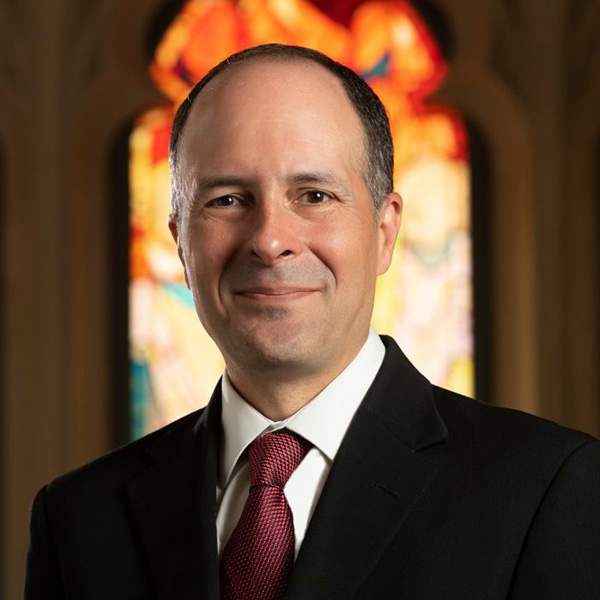In the past, Pentecost Sunday meant a trip to the mall for the dreaded hunt for a red dress. Much to my dismay, the churches I previously served all seemed to love themes and unified colors. Year after year, I faithfully fulfilled the request that we wear red to celebrate the church’s birthday.
When I became an ordained minister, my experience of Pentecost Sunday changed. My red dress is now a burgundy robe. My attention is now focused on contributing to the celebratory Pentecost Sunday experience.
Every aspect of the liturgy, from the Scripture reading to the announcements, is an invitation to celebrate the presence of the Holy Spirit. The entire worship experience is a festive delight that I have come to love.
High praise, lively worship and powerful preaching are always an anticipated part of the service in my tradition. The mass choir ministers with soul-stirring renditions of the songs of Zion. Liturgical dancers emerge from every corner of the sanctuary, waving flags and dancing in the aisles. By the end of the worship experience, I am overwhelmed with emotion, and my tears start to flow.
The congregation expects that the Spirit will fall in the midst of worship, that we will experience the Sprit’s presence in much the same way that the apostles did. God forbid the service should fall flat -- with the underlying feeling that we did not adequately celebrate the awesome gift that is the birth of the church.
I’ve frequently wondered whether my traditional way of understanding Pentecost has left room for it to be experienced beyond church walls. After all, how do you explain Pentecost to someone who stands outside an established worshipping community -- to your neighbor, to your friends, even to your husband, who thinks your church is too loud?
Is there a way to explain -- or even experience -- Pentecost apart from the spirited worship and celebration I have come to expect?
Recently, I facilitated a workshop on spiritual gifts for a colleague’s congregation, which gave me a new way of understanding Pentecost.
On my first visit, the members greeted me warmly. But as soon as I hit the front steps, they wanted to talk about the spiritual gifts assessment I had assigned to them. One gentleman I met on the sidewalk warned me about the strong reactions -- including his own. This assessment was created by a pastor from Southern California. Designed to get people to explore their own giftedness, it asks a series of questions about the way one operates among other believers. The members were invited to complete the assessment online before the workshop.
As we began discussing the results, many of the participants were quite astonished by (and in some cases resistant to) what was revealed.
One member reported hearing both of her teenagers scream from opposite sides of the church when they got their results. Both were convinced that the assessment could not possibly be right. Their results presented images that differed from how they saw themselves.
Many people struggled with the idea that they might have teaching and pastoral gifts. The number of reasons I heard explaining why God couldn’t possibly be calling them rivaled the protests of the Old Testament prophets. One couple wrestled with the call to pastoral ministry the assessment affirmed because they couldn’t see themselves as pastors. Several members had grown comfortable in their old ways of serving and were hesitant to step into new identities.
Yet as we talked, people’s arms began to unfold, their faces began to soften, and their hearts began to open. They began to see how their gifts were already expressed in their lives without their realizing it.
One by one, they discovered the power that had been given to them through their spiritual gifts. In their separate spheres of influence -- their families, their groups of friends, their communities -- each had been given the power to witness to God’s love and faithfulness.
One person realized that her spiritual gift of pastoring had allowed her to care for a group of friends who had otherwise been excluded from the church. Through her ministry to them, her friends had discovered they had a need for God’s church and had found a place that welcomed them.
Another talked about her desire to be “an exhilarating presence” within the now-troubled community she loved and had lived in all her life. On the last day, another shared the extraordinary experience of ministering to a man she had met on the way home who was hurting and in trouble. He was feeling hopeless, but she was able to encourage him, pray with him and offer further assistance. She attributed that moment in large part to what we had shared together over the weekend.
Wanting to remain professional, I resisted the urge to cry as I watched God move. Then I thought to myself, “This is Pentecost!”
Pentecost is a group of faithful disciples discovering they have power -- the kind of power that allows them to speak different languages.
Pentecost is purposeful power, enabling each of these disciples to speak the language of the people they are called to serve. Pentecost is God using God’s people to be a catalyst for transformation and to reach those who have been overlooked or considered beyond the bounds of ministry.
Pentecost is the equipping of everyday people to witness to the ends of the earth, or at least to places that seem like the ends of the earth.
A day or so after returning home, I received a message from one of the faithful disciples: “Thank you for what you left us with!” I was the one who was thankful.
I was thankful for an expanded understanding that obliterated the limits I’d placed on Pentecost. And yes, I cried.













